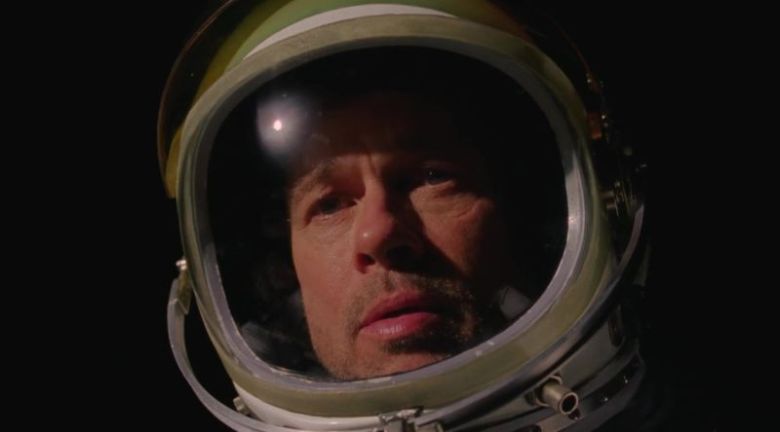“Ad Astra” Doesn’t Quite Stick The Landing
★★★
Ad Astra – a part science fiction, part personal drama starring Brad Pitt – is a good film. On a filmmaking level, there’s no denying that. It’s anchored by a legitimately compelling central performance, has a very good set of visual and audio effects, and possesses a spine-tingling score.
But it’s also, for lack of a better word, an empty film. Ad Astra’s marketing has promised something of a 2001: A Space Odyssey-style philosophical epic, but the finished film ends up being relatively simple and, dare I say it, disposable.
This isn’t necessarily a bad thing – not every sci-fi film has to be of the “thinking man’s” variety, nor should they be. My favorite sci-fi film is The Terminator, and it’s about as “philosophical” as its unfeeling antagonist. Simplicity can be good, and is often preferable.
The issue here, however, is that Ad Astra thinks it’s of the former category. It believes itself to be a significant artistic achievement when it barely exceeds the likes of Star Wars or even Guardians of the Galaxy in narrative clout. And as a result, the entire film is laced with this looming, almost overbearing sense of weight that just doesn’t feel terribly earned or necessary.
The story, at least, holds some potential. Ad Astra follows astronaut Roy McBride (played with considerable skill by Pitt) as he gradually discovers a grand, space-bound conspiracy regarding the whereabouts of his missing father. Tommy Lee Jones portrays Pitt’s onscreen father and, while he’s mostly confined to flashbacks, does an excellent job.
Ad Astra certainly has the makings of a potentially thoughtful sci-fi tale. If great films can be made out of superheroes and robot bounty hunters, surely a sci-fi family drama shouldn’t be too hard, right?
But Ad Astra never really goes anywhere with its premise. At least, not anywhere that literally a dozen films haven’t gone before. That’s another thing – Ad Astra essentially steals its most integral themes and values from other, better films; films that actually had something to say about their ideas; films like 2001 or, more recently, 2016’s Arrival, in which the basic message wasn’t something a preschooler could decode.
The moment this all became crushingly clear to me was in the film’s ending. Without delving too deep into spoilers, Ad Astra’s conclusion is way too simple for a film of its supposed importance. Everything just feels so… neat. For such a bleak and meditative film, Ad Astra’s ending is in line with a children’s fairy tale. The film’s final minutes is when its entire bubble of artificial weight finally caves in on itself, exposing it as the unextraordinary product that it really is.
This film reminds me very much of 2014’s Interstellar. Like Ad Astra, Interstellar was visually stunning and well-performed, and bore a number of notable scenes and characters. But it was also a hollow film; a film that spent so much time reminding you of its alleged significance that it ultimately failed in crafting a meaningful story.
Despite its shortcomings, I enjoyed Ad Astra for what it did right. Brad Pitt is fantastic, the visual effects wondrous, and the score appropriately awe-inspiring. But, if you were expecting the poignant sci-fi epic that I was, you may be left adrift.
Ratings Key:
★ – Bad (e.g., Godzilla ‘98, Pixels, Star Wars: Episode I – The Phantom Menace, Justice League)
★★ – Mediocre (e.g., Incredibles 2, Watchmen, Alice in Wonderland, Jumanji: Welcome To The Jungle)
★★★ – Good (e.g., Creed II, Batman, Star Wars: The Force Awakens, Pretty In Pink, Ace Ventura: Pet Detective)
★★★★ – Great (e.g., Jurassic Park, The Empire Strikes Back, Guardians of the Galaxy, The Social Network)
★★★★★ – Amazing (e.g., Dr. Strangelove, The Terminator, The Dark Knight, Back to the Future, Skyfall)

